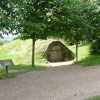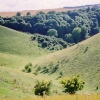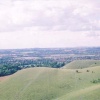Please login or click here to join.
Forgot Password? Click Here to reset pasword
 |  |  |  |  |  |
lancashirelove Posts: 1986 Joined: 18th Feb 2009 Location: UK | quotePosted at 14:12 on 13th May 2010 It depends on what is meant by 'dangerous' animal. The Adder is the most dangerous native 'wild' snake but in my 60+ years of living here I have never seen one. We dont 'do' dangerous animals in the wild, the wolf and the bear died out in England hundreds of years ago. Its quite safe to wander in the countryside without fear of being attacked by any dangerous animal, insect or reptile. Do take care though as some domestic animals such as cattle etc can be unpredictable. |
| Paul Hilton Posts: 2605 Joined: 21st Nov 2004 Location: UK | quotePosted at 14:22 on 13th May 2010 Vipers/Adders I think would be on anyone's list of native dangerous wild animals, though the number of people bitten by them seems fairly low. Studland Nature Reserve in Dorset is the only place where all species of England's snakes can be found living there. |
poe Posts: 1132 Joined: 26th Oct 2003 Location: England | quotePosted at 15:07 on 13th May 2010 |
| Jason T Posts: 7421 Joined: 14th Apr 2004 Location: UK | quotePosted at 15:10 on 14th May 2010 Badgers are dangerous if you corner one ...but really unlikely to approach you .. but they are i suppose a dangerous native animal!! saying all that an adder isn't likely to approach you either!! |
| Peter Evans Posts: 3863 Joined: 20th Aug 2006 Location: UK | quotePosted at 17:46 on 14th May 2010 The Scottish wild cat (Felis Silvestris Grampia) is the only real predator in the UK. There are only about 400 living in the wild and could become extinct in the next 5 years. Females grow to about 15 lbs and mails to about 17 lbs.They look very much like the domestic cats,but have been around for a lot longer than the domestic cats. They are related to the European wild cats,but are much larger. They hunt most anything that moves and regularly take lambs as prey. If cornered they will fight to the death. Not often seen by humans,they are mainly nocturnal. If you google "The Scottish Wildcat Association", there is a lot more information and photos. Edited by: Peter Evans at:14th May 2010 17:52 |
| Krissy Posts: 15430 Joined: 8th Jul 2008 Location: USA | quotePosted at 18:06 on 14th May 2010 Peter that is very interesting. I had no idea the UK had wildcats. |
| Please login to post to this thread... |